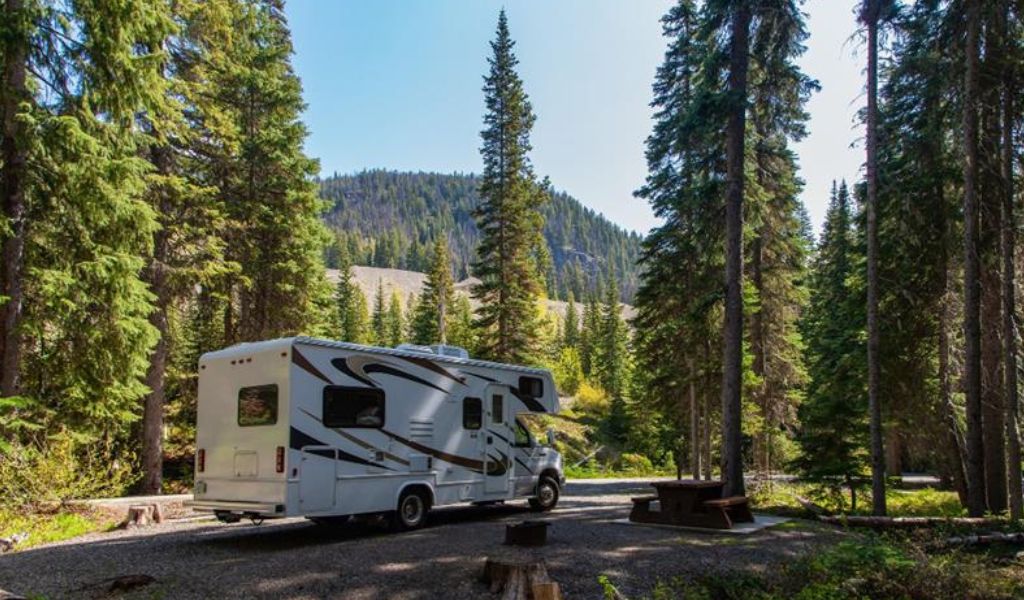Recreational vehicles (RVs) are quickly becoming the go-to choice for travelers seeking freedom, flexibility, and a deeper connection to the outdoors.
According to GlobeNewswire, the worldwide recreational vehicle (RV) market was valued at USD 56.35 billion in 2024. It is projected to grow from USD 60.91 billion in 2025 to USD 97.86 billion by 2033, expanding at a CAGR of 6.5% during the forecast period.
This growth is fueled by increasing enthusiasm for outdoor activities, as more people look to escape the pressures of urban life.
Hiking, camping, and road trips have become cherished ways for families and friends to create lasting memories together. Here are some of the best tips for new RV owners to make the trip enjoyable for you.
Tips For New RV Owners To Enjoy Their Adventures
For those stepping into the RV lifestyle for the first time, preparation is key. From understanding your vehicle’s systems to planning your routes and knowing where to keep your RV between trips, there’s a lot to learn.
Here’s what every new RV owner should know before hitting the open road.
1. Routes, Reservations, And Realities
A successful RV trip starts with proper planning; it is not just about plugging it into a destination and hitting the road. Start by researching some RV-friendly routes.
Not every road is suitable for this kind of large vehicle. Consider using an RV-specific GPS system that will consider the height, weight, and length of the vehicle.
As Travel + Leisure wisely advises, don’t solely rely on Google Maps. RVs typically travel slower than cars. For instance, a seemingly four-hour drive from Zion to Dead Horse Point in Utah can easily stretch to over six hours in an RV.
If you are booking a campground, book it in advance during the peak seasons and verify amenities, size restrictions, and hookup types.
Private RV parks, even at reasonable rates, often offer excellent amenities like showers, pools, and Wi-Fi when state or national park campgrounds are full.
Also, avoid driving your RV into crowded national parks unless necessary. Parking can be scarce, and tight roads or tunnel restrictions make shuttles a better, often free, alternative.
Finally, monitor weather forecasts along your entire route, as RVs are more susceptible to wind and require extra stopping and maneuvering time.
2. Essential Systems And Safety Checks
Befire you leave for the road, conduct a thorough inspection of all the systems. Starting with the electrical system and ending with checking the lights, indicators ,and brakes, you need to check everything properly.
Test the battery for both the house and your vehicle, and make sure that these are completely charged and connected. Check the propane systems for leaks. Any kind of dangerous leaks should be addressed immediately.
You need to pay some attention to the plumbing system as well. Check the toilet, faucets, and exterior connections for leaks. Make sure the freshwater tank is filled and the pump is working fine. Sanitize the freshwater system if there was water stored for a long time.
Check the tyres for safety and tyre pressure, including the spare one you will be carrying. Look for signs of damage and cracking. You will need to replace the tyres depending on the damage. Make sure you have all the tyre-changing tools with you and in good condition.
3. Proper Storage And Maintenance Between Adventures
The way you take care of your vehicles in between trips plays an important role in preserving your vehicle. You have to choose the right RV and boat storage facility to protect them from environmental issues and security risks.
For instance, in Florida and Ocala, residents have to be prepared for tropical storms and hurricanes. The Atlantic hurricane impacts the region severely from June 1st to November 30th.
Opting for specialized facilities for RV & boat storage in Ocala, Florida, helps safeguard your vehicle from weather-related threats, UV damage, and theft.
According to Beacon RV & Boat Storage, owners should know the difference between true RV storage and simple RV parking.
When you are parking, it is less secure and short-term, whereas storage offers better and long-term protection for the vehicle.
Before you put the RV in storage, ensure that you have cleaned it properly. Remove all food, dry the surface, and add a fuel stabilizer.
Check the RV monthly, start the engine, and maintain it regularly with a skilled technician to make sure it is ready to run on the road.
4. Hookups And Campground Amenities
Most of the RV campgrounds have three kinds of hookups: sewer, electric, and water. Electric hookups mostly come in 30-amp ot 5-amp configurations. You will need a proper adapter if the RV doesn’t match the setup in the campground.
Water hookups help you maintain a fresh water supply, while sewer hookups allow you to drain the black and gray water tanks.
However, it is important that you know the difference between grey and black water. Grey water is the water that comes from showers and sinks, while black water is the sewage waste from the toilet.
Dump the black water first and then the grey water. This helps clean the hose properly. Some of the campgrounds also have cable TV and WiFi connection, though the quality can vary.
A few campgrounds offer dry or primitive camping, meaning there are no hookups available. Here, you will have to manage your water, power, and waste systems even more carefully.
Make sure all your batteries are completely charged, you have fresh water in the tank, and that your waste tanks are empty before you try dry camping.
5. Essential Items For Your RV Emergency Kit
You need to keep a well-rounded emergency kit in the RV for mechanical and personal safety reasons. Apart from the standard automotive supplies, keep essential tools like spare fuses, pliers, wrenches, screwdrivers, replacement lightbulbs, and hose repair kits.
Moreover, keep items like zip ties, duct tape, and electrical tape in case you need a quick fix in the middle of the road. Prioritize the safety equipment as it can cause fire hazards because of the compact spaces, limited exits, and fuel systems.
This is proven in Washington state in 2024, where 453 RV fires caused seven deaths and more than $6 million in property loss.
Functional carbon monoxide and smoke detectors, escape route planning, and accessible portable fire extinguishers can prevent these kinds of tragic accidents. Also, keep a first-aid kit in the RV.
For unexpected delays, pack extra blankets, non-perishable food, and water. A portable generator is invaluable for power outages or boondocking. Finally, ensure reliable communication equipment, including a CB radio for areas with limited cell service.
Frequently Asked Questions
Apart from the tips for new RV owners, here are some of the commonly asked questions they ask before starting their journey.
If you are thinking of the things that you must have, then you need to include leveling blocks, surge protector, sewer hose kit, water pressure regulator, basic toolset, freshwater hose, and of course, a first-aid kit.
Moreover, add kitchen essentials, a fire extinguisher, backup power, and an emergency kit, in case you need them.
Most of the U.S. states don’t need a special license to drive a standard RV under 26,000 pounds.
However, large RVs or those that tow heavy trailers may need a commercial or non-commercial Class B or A license. Check the states’ DMV regulations to know if there are any specific requirements.
Do not bring too much luggage and fragile items on the trip. Moreover, do not bring anything that you will need to refrigerate constantly.
Skip any gadgets, large furnitures, and breakable decor if not absolutely necessary. Leave out open-flame stoves or candles if you can to avoid any fire hazards. Additionally, do not overload water or gears that will exceed the weight capacity of the RV.
Enjoy You Journey To The Fullest
Going on your first RV adventure is the start of a new lifestyle that offers freedom and flexibility. Initially, it might take some time to learn, but the rewards it will offer are better than the challenges.
Take things slow during the first few trips, use the given tips for new RV owners, give it some more time to steep, and break down the procedures.
Never try to cover too much ground during the first few times. Moreover, enjoy the adventure and be flexible, as things might not work out exactly as you planned. If you’re not hitting the road for a while or your RV’s parked between travels, it’s worth finding a secure place for your vehicle and extra gear. Storage units Winston-Salem provide climate-protected, secure space to store your RV, trailers, or accessories, giving you peace of mind and keeping everything ready for your next adventure.
Read Also:














